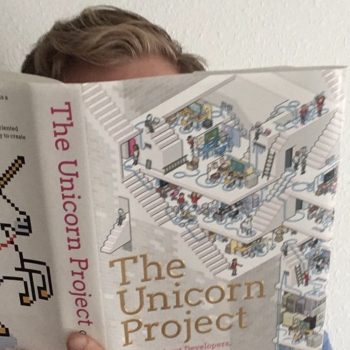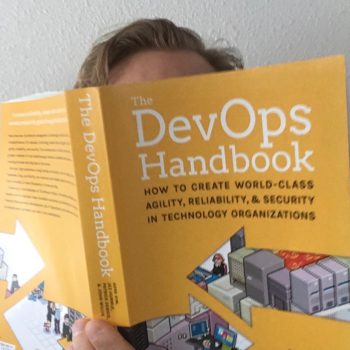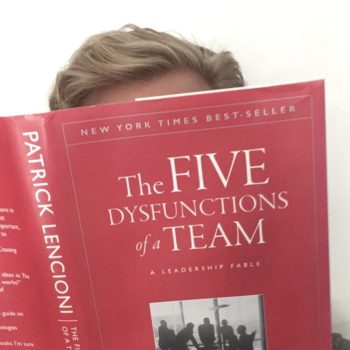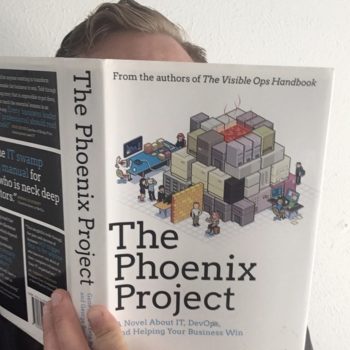
The Unicorn Project
A Novel about Developers, Digital Disruption, and Thriving in the Age of Data
Categories:
Favorite,
CTO,
Engineering Manager,
Tech Lead,
Product Manager
How strongly do I recommend The Unicorn Project?
8 / 10
Review of The Unicorn Project
The Unicorn Project is another excellent book by Gene Kim and a continuation of The Phoenix Project’s storyline.
In this book, Maxine is an outstanding senior developer who has been reprimanded for speaking up about underperforming systems at her employer, a large auto parts manufacturer and retailer. She comes across a group of IT and project management people calling themselves “The Rebellion.”
This group of frustrated IT employees feels intent on cutting through red tape and delivering results for the business through technology and process innovation, culminating in the Unicorn Project.
Top Ideas in This Book
- Even within slow and bureaucratic organizations, you will find pockets of people fighting the good fight and trying to enact change
- Psychological safety is a necessary environmental condition to grow high performance teams
- Technical debt would be more appropriately named complexity debt because its not a pure technology problem
- Dependencies between teams is where work that’s been started goes to die
- When performing a task is painful, like code merging or deploying, you counterintuitively need to perform it more often
- Small doesn’t beat large; fast beats slow; big and fast beats everyone
- Strong middle managers can drive change because they understand the work and can pull strings on resourcing and prioritization
- Non-tech companies need to perceive technology as a core competency to survive in the modern marketplace
Even within slow and bureaucratic organizations, you will find pockets of people fighting the good fight and trying to enact change
As an individual contributor feeling frustrated, try looking for people within your organization who feel similarly. But rather than simply commiserating, try to make things better.
As a leader of people, you can either try to understand the rebellion or you can try to smother it.
Psychological safety is a necessary environmental condition to grow high performance teams
Organizations that look for a “throat to choke” or go on witch hunts do not have the psychological safety necessary for people to take chances. In these pathological environments, people stay in their lane, cover their asses, and act defensively because sticking your head up means getting it chopped off.
Technical debt would be more appropriately named complexity debt because its not a pure technology problem
Technical debt is what you feel when you try making changes to the system. And you make changes to the system because the business needs have changed.
What we’re describing is not really technical debt. We’re experiencing complexity debt driven by years of change within the business, industry, and customer base. Although we present these ideas as technology problems, they really span the whole business.
Dependencies between teams is where work that’s been started goes to die
Every developer has experienced work that’s been started, handed off to QA or another department, then completely stalled. This situation is frustrating and points to the need for tighter integration and dependency management between teams.
When performing a task is painful, like code merging or deploying, you counterintuitively need to perform it more often
When events are painful, we often react by reducing the frequency and batching operations. That’s exactly the wrong approach for building high performance teams and systems. You actually need to perform the action more often and relentlessly fix what makes the event painful.
Small doesn’t beat large; fast beats slow; big and fast beats everyone
Being small isn’t an advantage. What matters first is speed. Fast wins. Assuming speed, bigger will always beat smaller.
Strong middle managers can drive change because they understand the work and can pull strings on resourcing and prioritization
Most individual contributors cannot enact change on their own because they lack the political savvy and capital. To really drive change, you need strong middle managers capable of navigating their organization up and down.
Non-tech companies need to perceive technology as a core competency to survive in the modern marketplace
The Unicorn Project tells the story of an auto parts manufacturer and retailer struggling to enter the digital age. In this story, the company doesn’t see technology as a core competency and frequently considers outsourcing technology entirely. But for this company to survive and thrive, they need to perceive themselves as a tech company because that’s what their customer base demands.



